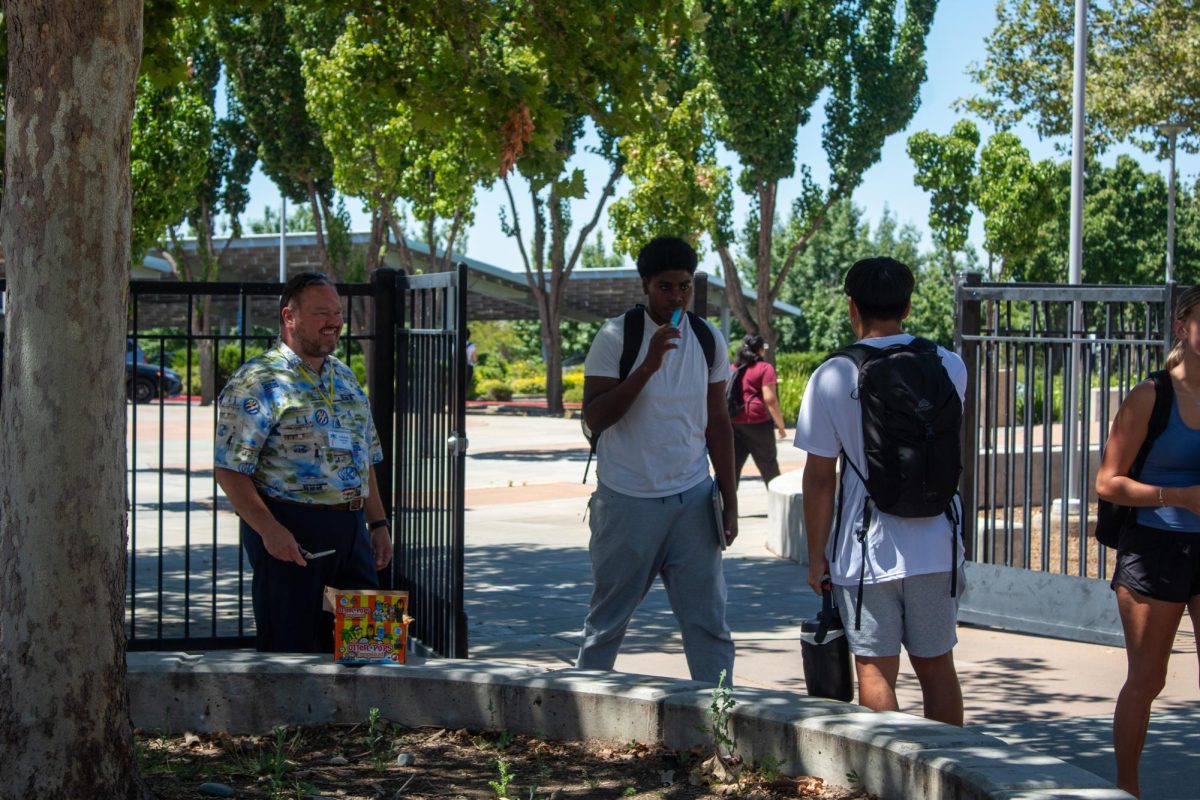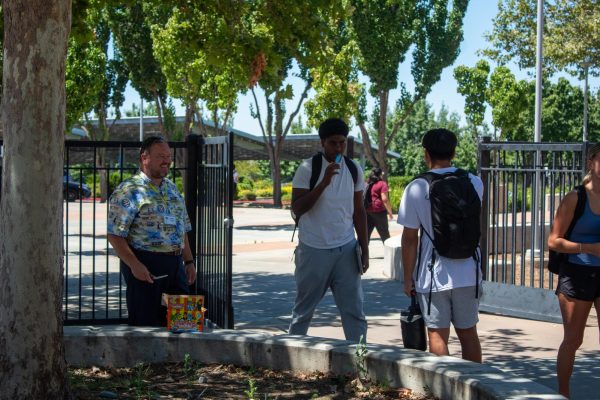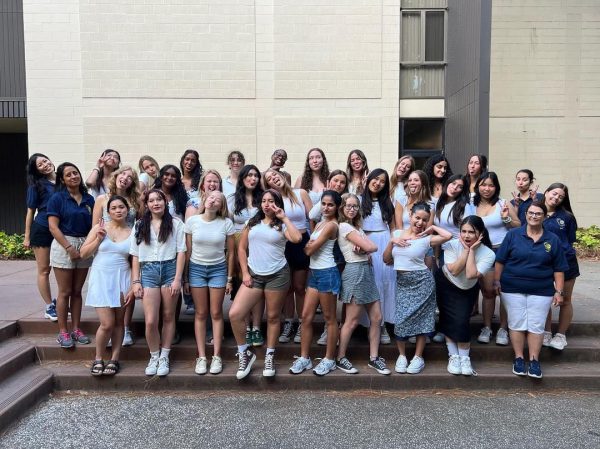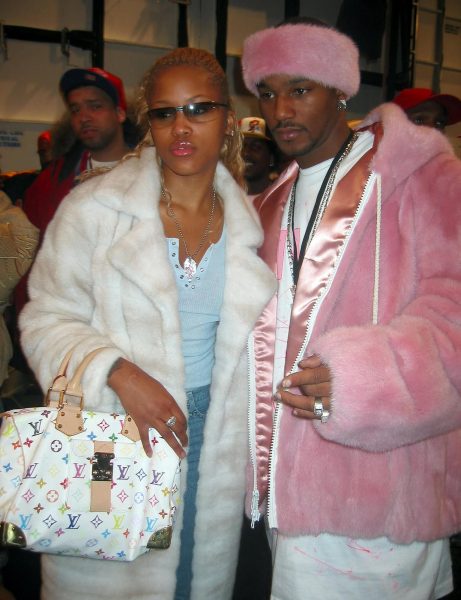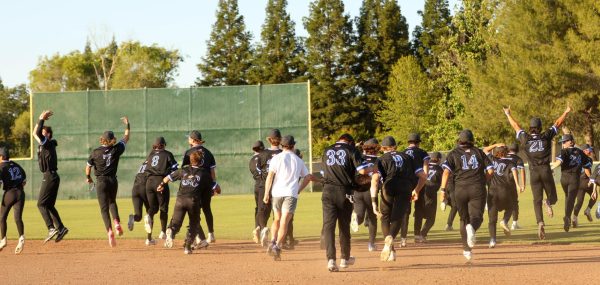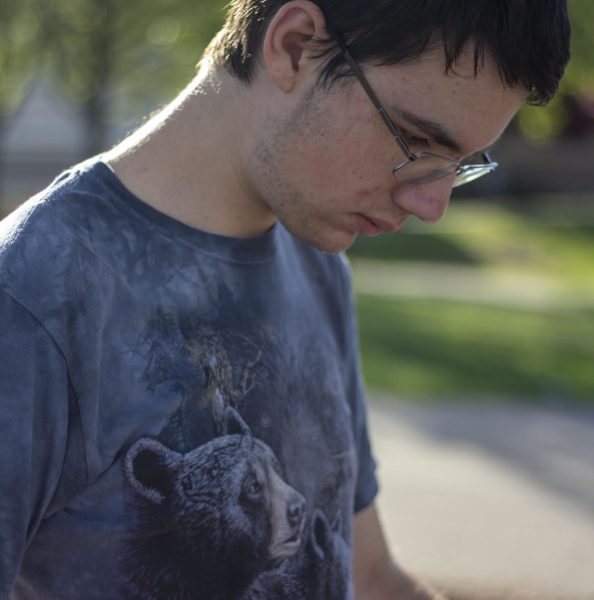Success = Happiness?
OPINION: Hustle and Burn Out Culture is not Healthy.
June 1, 2023
Hustle Culture promotes that the sole path to success is sacrificing your mental health in exchange for success and money. This type of environment starts as soon as high school with students under pressure to have their entire future and major planned out before they turn 18. With dropping UC acceptance rates and on the rise over-achievers, many believe that if they do not get accepted into what they deem is a title school, their entire future is gone. The mentality that they need to be viewed as an all-rounder has sparked an increase in burnt out students.
“The term, ‘Hustle Culture’, is kind of what I just think of as normal. Like, it’s not a special thing,” said Claire Sanchez, a sophomore at Rocklin High School, “Sacrificing your mental health, or whatever, that comes second in my mind.” Today’s world is made up of high achievers and part of it stems from where one goes to college, the starting point of adulthood. Compared to the 1990s, colleges (more specifically, UCs) are extremely difficult to get into and acceptance rates have dropped down to single digit percentages. UCs have become the golden ticket to a successful life and the reason behind that comes from the fact “it’s kind of accessible for California, well it used to be at least, and people are wanting to have better jobs now.” Starting all the way from the nineteenth century, many immigrants have come to the US for better opportunities and futures. This drive for success and wealth carries on to first-generation children and causes overwhelming stress.
The pressure coming from both societal norms and parents makes students burn out from the need to be an all-rounder and create the perfect student image. This drive for success and perfection easily leads to a fast burn out that reflects students’ mental states.
“Often as people, we tend to get our value from, like, accomplishment and achievement,” – Joshua Rubinstein, RHS media teacher
“–and so, I think for some people, it kind of comes down almost to how they see themselves as worthy or not; whether or not they get into that big school after all this push.” Title schools, such as UC Berkeley or Princeton, are schools that parents gush over and see it as a bragging right if their children go there. Whether subconsciously or consciously, these parents’ dreams are shoved down their children’s throats and they don’t realize the damage they’re doing to their kids. Expectations pile on top of each other and feelings of needing to stand out start to rise, being prominent in how many advanced classes one takes. “I do feel like that pressure that’s put on some people by their families.. There’s a flip side of that which is actually really good and healthy,” Mr. Rubinstein interpreted, “ Like, it’s a loving thing to consider your family and to think of what they’ve wanted for you, right? But it’s also, you have to be aware that they may want something for you that’s actually not right at all and in the end, it’s not loving to live a lie.”
Humans, especially teenagers or young adults, are scared of confrontation especially from their parents. Seeing families’ expectations and hopes, many would prefer to break their happiness but not their families when they think of everything their family has done to them. What they fail to realize is, it’s unhealthy and that care goes both ways in a family. Just as much as one doesn’t want to break their family, it is reciprocated on the other side. Parents generally don’t want their children to be depressed.
Another large reason for burn-out is because high school students are expected to know their major and what they want to do in life so early. Many decide to settle in the medical field, as it’s the “safest” option that guarantees money and a comfortable living style. RHS history teacher, Mrs. Kenitzer, overhears of many students who have their parents wanting them to go into the medical field, but she wonders, “is that something [they] actually want to do, or is it just because [their] parents want to do this?’” It’s scary for every teenager, having to know what career they want to pursue before they graduate and feeling stuck in that major. It instills lots of fear, fear of not knowing what they’re gonna do in life and fear of not getting accepted into any schools. That leads to them landing a job that’s extremely demanding, but pays enough money for them to be guaranteed a future. “It kind of makes me worry if I’m, you know, a few years into college and then suddenly like ‘Wow, I don’t wanna spend the rest of my life doing this and I’ve already dug a hole, I’m too deep, like what do I do now?’” Claire worried, “No matter how much you love something, spending the rest of your life doing it sounds kind of daunting.”
“I think there’s a lot with students and their friend groups as well, like, ‘oh you’re not taking this AP class? You’re not taking this honor class?” said Mrs. Kenitzer. Arguably, the worst pressure does not come from families but rather one’s own peers. Seeing others the same age achieving great grades, better at athletics, or essentially everything a student aspires to be puts a damper on one’s self esteem and feelings of inferiority start to develop. Students look at these high achievers, and ponder, “how can they do that, and not me?” Whether this serves as a healthy or unhealthy catalyst is based upon how the student will react.
“I think so much of your job and your career is like, who you know, your work ethic, like can you be social in a interview because nobody is gonna want anybody who can’t carry on a conversation. So, you can be the smartest person but like, if you can’t interact with people then like, who wants you?” – April Kenitzer, RHS history teacher
Students often compare themselves to other achievements others have: it is an unhealthy mechanism that can be blamed on the education system. The US education system focuses on learning one specific skill in a certain manner and fails to acknowledge that other students have different learning methods. When they fail essential skills or tests while scholars get perfect or high scores, they blame it all on themselves that leads to wavering self confidence in their intelligence. Involving colleges: when it comes to college acceptance, unfortunately personal bias comes to play with gender and race. This leads to certain minorities pushing themselves and forcing that burn-out onto themselves just to see an acceptance letter from a prestigious school that guarantees them for life. Seeing that rejected/waitlisted letter brings them down after they’ve worked themselves to death.
Mrs. Kenitzer feels a conflict between her personal feelings, and the Hustle Culture normality. “I’m definitely in a harder position because as an AP class, I am expected to teach you all these things to be successful on that AP test. That’s what all the parents want me to do,” she stresses, “I am also in [the] belief that I don’t want you guys to have this burn-out and I don’t want you guys to have this ‘Hustle Culture’, so it’s like how do I limit that? But at the same time, prepare you guys as much as possible…”
“This world does not need more people that are just part of the ‘rat race’,” said Mr. Rubinstein, “it needs more people that are passionate about what they’re doing. I kind of think we need to change our standards for success in the United States. I think a lot of it comes down to the all-mighty dollar, and whether or not people feel like they’re earning enough.”
Promoting this type of lifestyle is extremely deleterious and instills fear into students’ future: fear of not having a planned out future when it’s a time they should be having fun. This time period is meant to explore potential interests that could spread to careers, not burning oneself out. This type of culture essentially drains the childhood out of students, “I would never want to look back and think, ‘man, I really wish I did blank, blank and blank,’” said Mrs. Kenitzer, “[thinking] ‘did I really have to give up all these things for that A?’” What makes a student stand out from a flood of applicants is something connecting all their extracurriculars that they enjoy doing. “If you’re a college admission person and you’re waiting for people to apply and stuff, and you only look at their stats,” explained Claire, “sure, there’s a lot of overachievers but when you’re looking at their resume like that and all you see is that they’re in all these great things, they did all these things, but you can’t tell anything about the person: all you know is that they’re an overachiever, that doesn’t really tell you about them, you know?” If all kids did an overwhelming amount of extracurriculars, school activities, and hard classes with no clear connection in a passion and just taking it to look good for colleges, they’re just like a statistic and the same as every other applicant.
Overall, Hustle Culture does not only affect students, but teachers as well. Society’s fast moving pace sets our generation up for failure and massive burn-out, which might not seem to have everlasting effects, but it creates a foundation for trauma for future generations. “It’s just this hard line of like, how do we get them prepared but then also not force that burn out?”
Listen to the full interview on our podcast embedded below:







